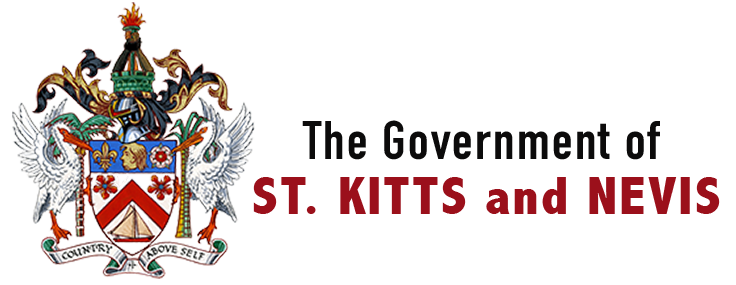In SKN Youth Employment
In SKN Youth Employment
Practical tips and advice to support young people gain their first job.
A résumé is a self-promotional document that presents you in the best possible light, for the purpose of getting invited to a job interview. It’s not an official personnel document. It’s not a job application. It’s not a “career obituary”! And it’s not a confessional.
Résumé Tips
Q & A
What should the résumé content be about?
A résumé should be about YOU! You show who you are by way of your past job positions, education history, relevant skills and abilities, and hobbies/interests…IF it shows the best YOU! If not…you leave it out.
What must be on a résumé?
Your contact information. Be clear to include your email address. Do NOT include a website IF it is not job-oriented. (Do know that serious candidates will be searched thoroughly online). Delete anything on internet you may not want a boss to view.
What is important–what experience may identify you as an exceptional hire?
If you have no good work history pertaining to the position you are applying for, then go out and get it! Volunteer your services in that area immediately. A few months of experience in a job which satisfies your current supervisor may suffice for “experience”. If you come to your résumé as qualified…make sure you are not OVERLY qualified!
How to list jobs held only during summer or holiday employment?
Many students hold part-time seasonal employment. On résumé, simply list jobs–as such, include time references as “Winter 2015” or “Summer 2010.”
What if you are still in school? Or have yet to earn degree or receive credentials?
Write: Eligible for U.S. credentials; Studies in Instructional Design in progress; Graduation intended June 2017; or Degree expected December 2017
What if you got your degree from a different country?
You can say “Equivalent to U.S. Bachelor’s Degree in Economics-St. Kitts, WI.”
Have you any space of more than a month between work experience?
Possibility: Write what you were doing in the meantime. Try NOT to leave a space. You may write 2013-15 Full-time parent; 2012-14 Maternity leave and family management; Travel and study; Full-time student; or Parenting and community service
Have you many brief positions? Perhaps they are in varied industries even?
To not look uncertain and indifferent to any position, put several of the job experiences together. For example: 2011-2013 Secretary/Receptionist; Jones Bakery, Micro Corp., Carter Jewelers & 2007-2010 Waiter/Busboy; Fine’s Restaurant, Burger Queen, Cup O’ Coffee
How to best showcase your actual work ability?
Use ACTION words, specifically highlighting any leadership or any special duties. For example use * instead of.
“cut-costs 20%” v. “managed operations”
“led motivational seminars” v. “motivated employees”
“timely counted, sorted, and delivered product“ v. “performed tasks as directed”
Am I too old? Too young?
Say you’re over 40, and you think they want a younger, eager to please person, and you are “eager.” State “Experience Desired” instead of “Work Experience” on your résumé Write in only that “experience” that qualifies, representing your “eagerness.” If not enough history–Use: “Relevant Experience” without any mention of timeframe.
Too young to have had “real” work experience? Then,…Alleviate problem by accounting your “actual” work! For example: Create a ‘self-employed’ title, i.e.
Be ready to make reference available of those people for whom you worked.
**********************************************************************************************************
Top Interviewing Tips
Be on time. Actually, arriving approximately 10-15 mins. prior to the interview IS “on time.” It gives you an opportunity to get acquainted with the surroundings. Survey area.
Know who you will be meeting. Know the names of the interviewer(s). Visualize the introduction; practice saying difficult names.
Dress appropriately. The “blue” suit is not necessary if you are going to be a gym instructor. However, do be clean, odorless, and as “presentable” as possible. No stains, wrinkles or ill-fitting (too tight or loose) items of clothing. Wear something you feel comfy in allowing for you to concentrate more on the position and not on your attire.
Be prepared to answer “awkward” questions. Certainly, know how to respond to all questions regarding your past employment and education history. Though, most formal interviews include that one type of question not designed to dissuade the candidate from the position, but to encourage the candidate to relate an experience that was unexpected and not so desirable enabling the interviewer to see how well you behave in less than advantageous or ‘normal’ circumstances. Be POSITIVE about the experience–state how well you handled the situation and/or how much you LEARNED from it. Be truthful. If it didn’t go well? Don’t say, “I flaked out”. Say rather, “I was much concerned.” Say, “I was surprised,” not “I had no idea.” Your fault? Say, “I accepted responsibility.” If you didn’t, say, “I learned how to gauge the situation.”
Be prepared to ask a question. Prepare a few detailed questions on your tablet. Check to see if all were addressed. If they all were addressed. State a few of them and how you have understood the response. A good statement then is, “How thorough you were. Thank you for addressing all of my questions.”
REMEMBER: First impressions really do count. Be yourself–the BEST you!
